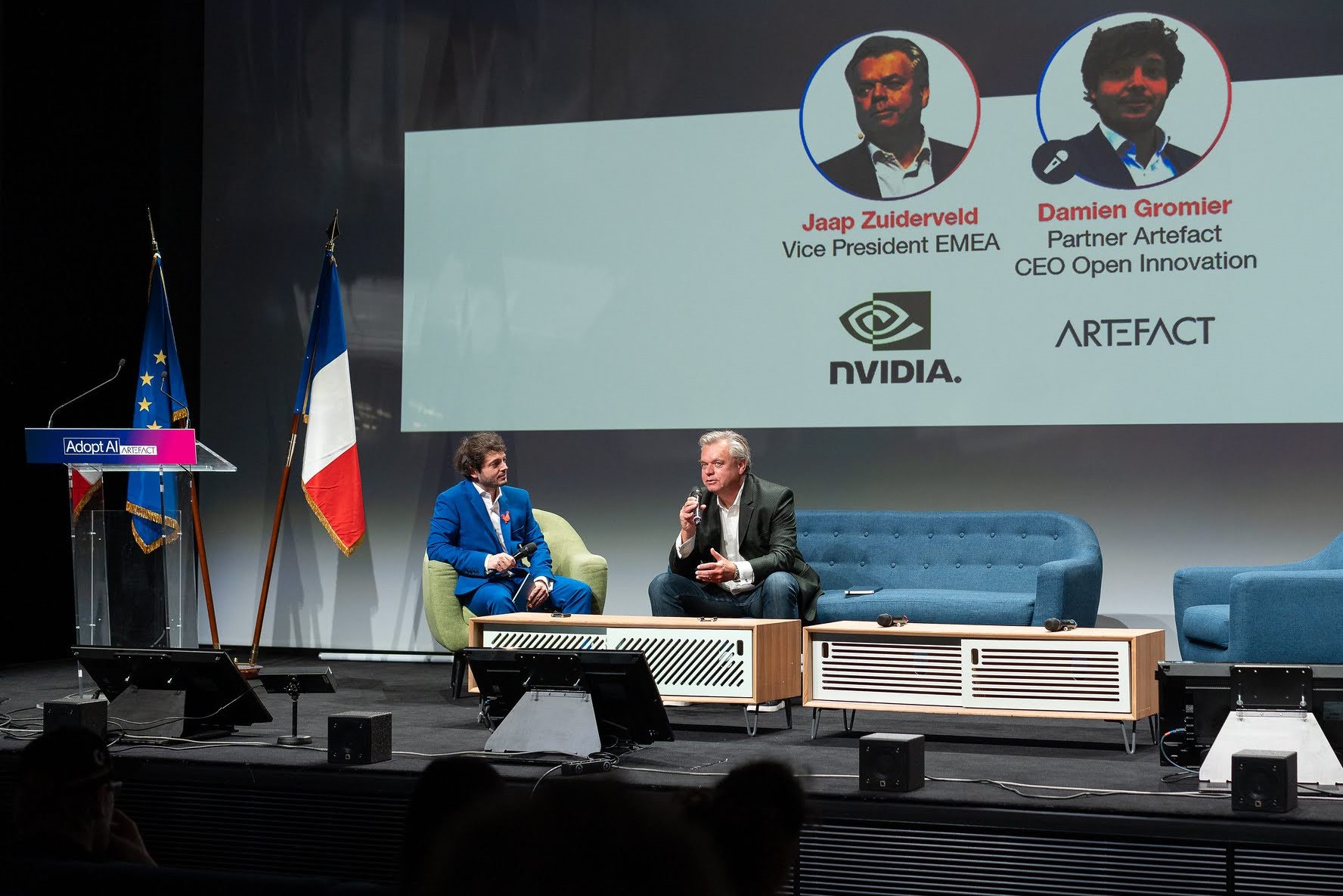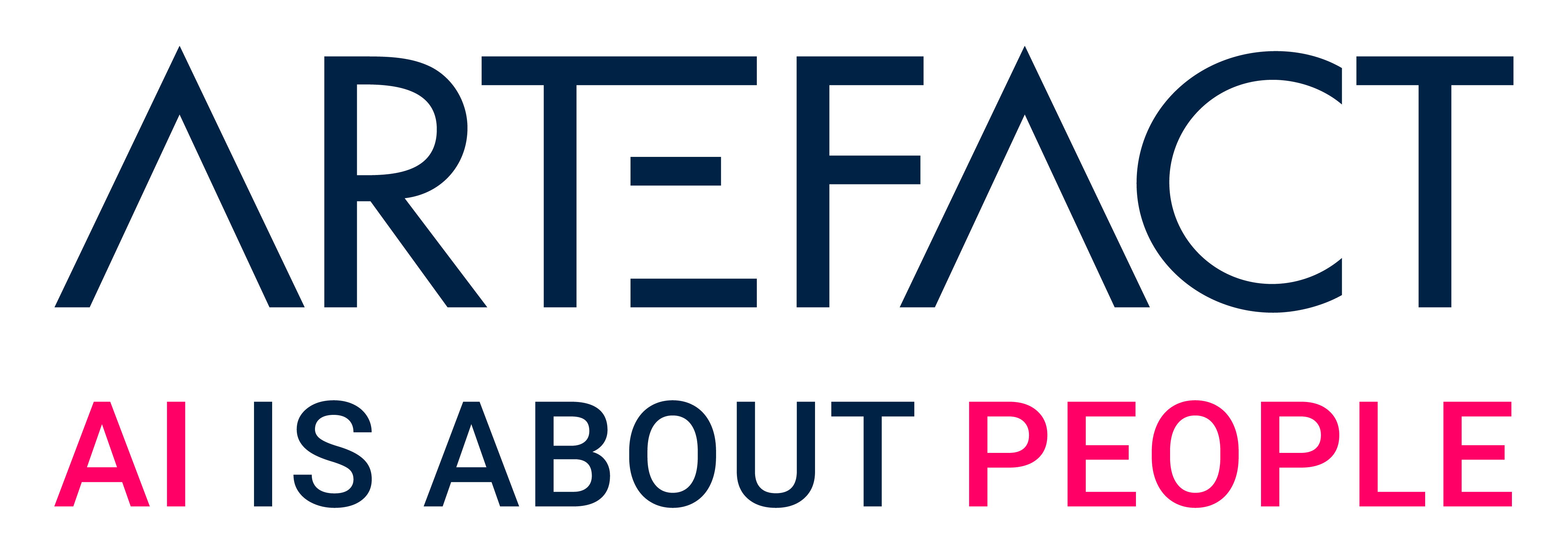Key learnings from the discussion with Jaap Zuiderveld, Vice President EMEA of Nvidia, at the Adopt AI Summit by Artefact - June 5, 2024
Questions from Damien Gromier, Partner at Artefact and CEO of Artefact Open Innovation.
About Jaap Zuiderveld: Nvidia’s Vice President EMEA presents his vision of the widespread adoption and transformative impact of AI in various industries, as well as future trends in large language models (LLMs) and generative AI.
About Nvidia: New global leader in AI and computing technologies, renowned for its pioneering GPUs and AI innovations that are advancing gaming, data centres and many other sectors. The company’s focus on solving complex computing problems with advanced AI and deep learning solutions keeps it at the forefront of the market.
Widespread AI adoption
Jaap Zuiderveld emphasized that AI adoption is occurring across all industries, driven by the potential of gen AI to transform business operations. Industries heavily reliant on computer power, such as healthcare, finance, and automotive, are seeing significant impacts. This widespread interest and adoption underline the universal applicability and importance of AI in today’s business landscape.
Specific applications in automotive industry
AI is revolutionizing every aspect of the value chain, from design and production to customer service and autonomous driving. Jaap Zuiderveld mentioned how virtual factories, created using generative AI are saving billions by optimizing production processes. In car design, AI helps in creating personalized options for customers, streamlining production accordingly. Moreover, AI is crucial in advancing self-driving technologies, with Nvidia collaborating with company like Mercedes to bring autonomous vehicles to market. These applications demonstrate AI’s potential to enhance efficiency, innovation, and customer experience in the automotive sector.
Knowledge and ecosystem development in France
France has emerged as a significant player in the AI landscape. Zuiderveld highlighted the importance of having resources with deep knowledge in AI, citing figures like Yann LeCun who have contributed to France’s AI initiatives. Companies like Mistral, a leading generative AI firm, exemplify the innovative spirit in France. The collaborative efforts across education, research, and industry are creating a robust ecosystem that fosters AI development and adoption. This holistic approach ensures that AI is not only developed but also effectively integrated into various sectors, driving economic growth and technological advancement.
Global perspective and trends
Zuiderveld provided a global perspective on AI adoption, noting that regions like the Middle East are rapidly advancing in AI integration. He stressed the need for European businesses to actively engage with AI to stay competitive. Zuiderveld predicted the emergence of several foundational models, such as Mistral, ChatGPT, and Falcon, which will serve as the basis for specialized models tailored to specific industries. The key to widespread AI adoption, he argued, lies in the ease of use and accessibility of these models, allowing businesses to integrate AI seamlessly into their operations.
Impact on business processes
GenAI has the potential to fundamentally change businesses by enabling faster decision-making and reducing time-to-market for new products. Zuiderveld highlighted that startups are likely to drive market changes due to their agility and innovative approaches.
“It all depends on what you’re doing in the market, how you approach your services to the customer, and what you want to achieve. This technology will have a larger influence on what people are doing in the market, and it’s really about understanding how to integrate it effectively into your business processes to drive efficiency and innovation.”Jaap Zuiderveld, Vice President EMEA of Nvidia
Jaap Zuiderveld’s keynote shed light on the transformative power of AI across industries, with insights into the evolving AI landscape in France and globally. His vision for the future of AI, including the development of foundational and specialized models, emphasizes the importance of knowledge, collaboration, and innovation in driving AI adoption.

 BLOG
BLOG



